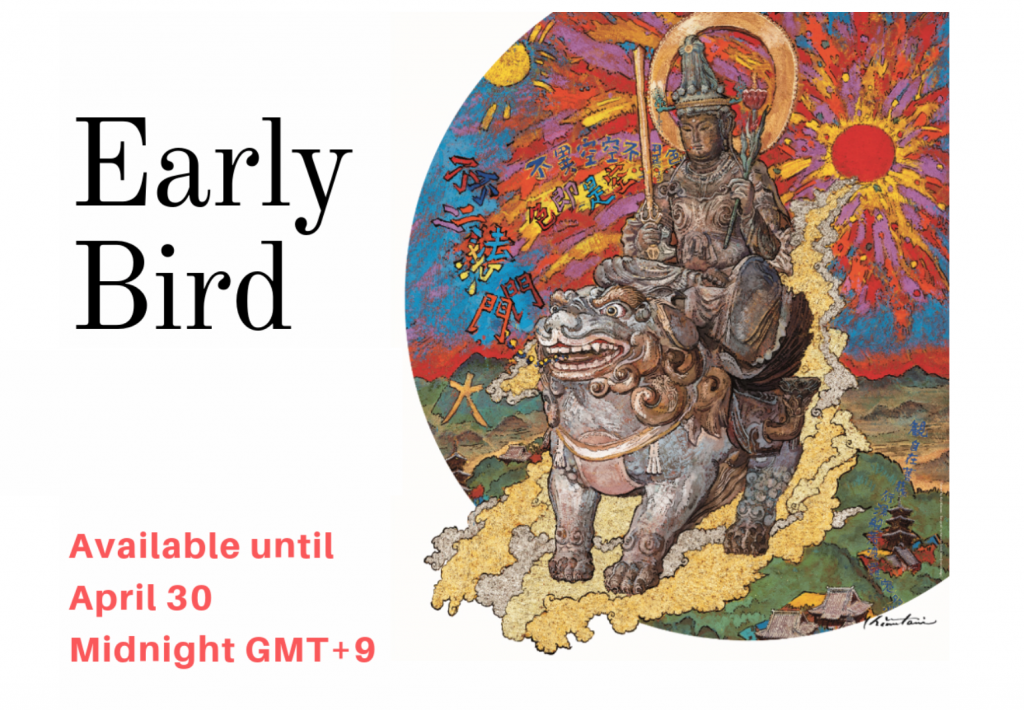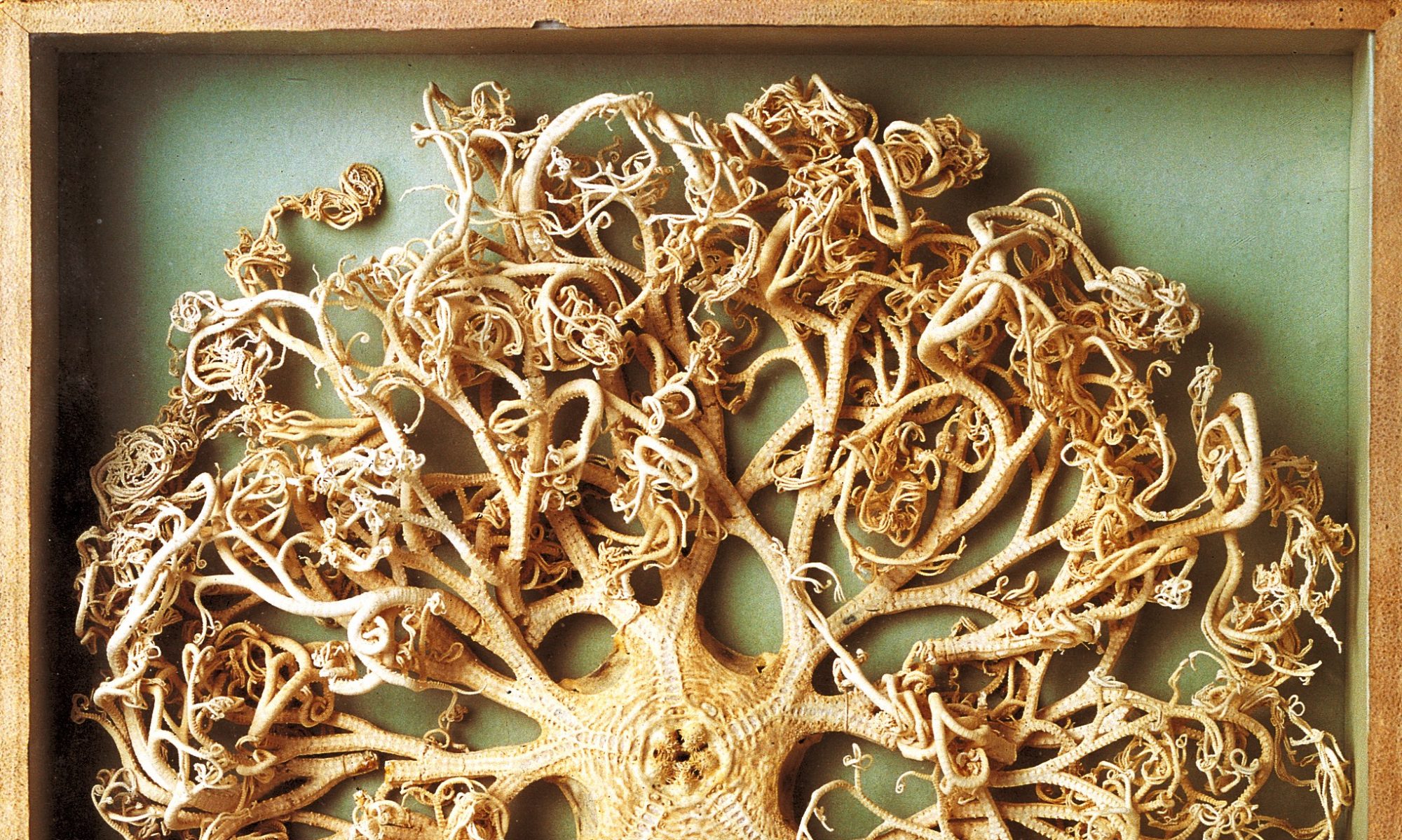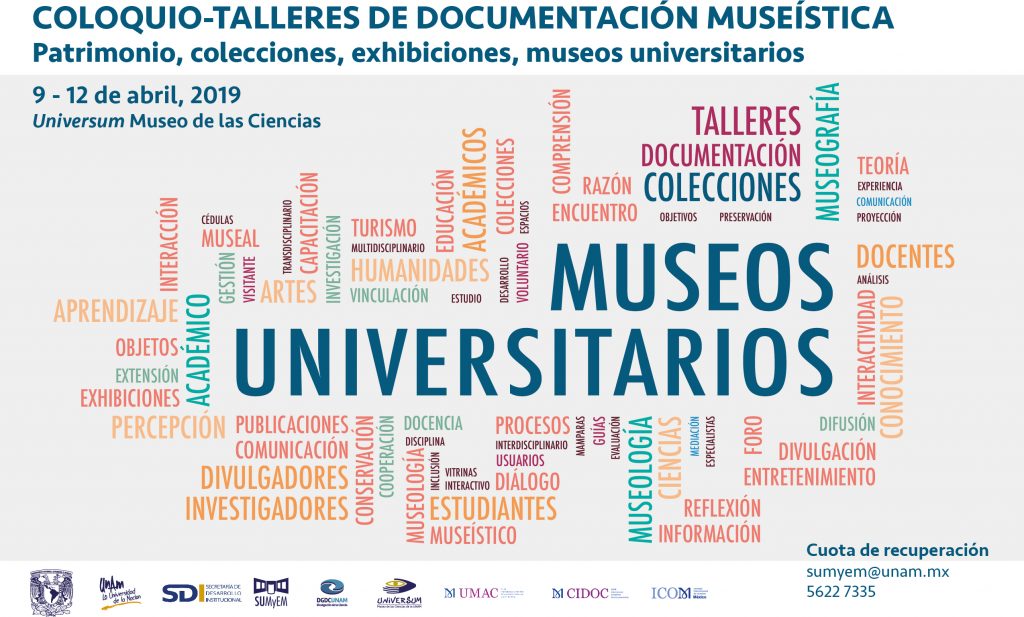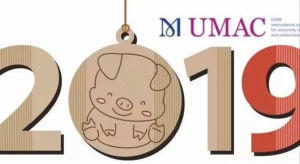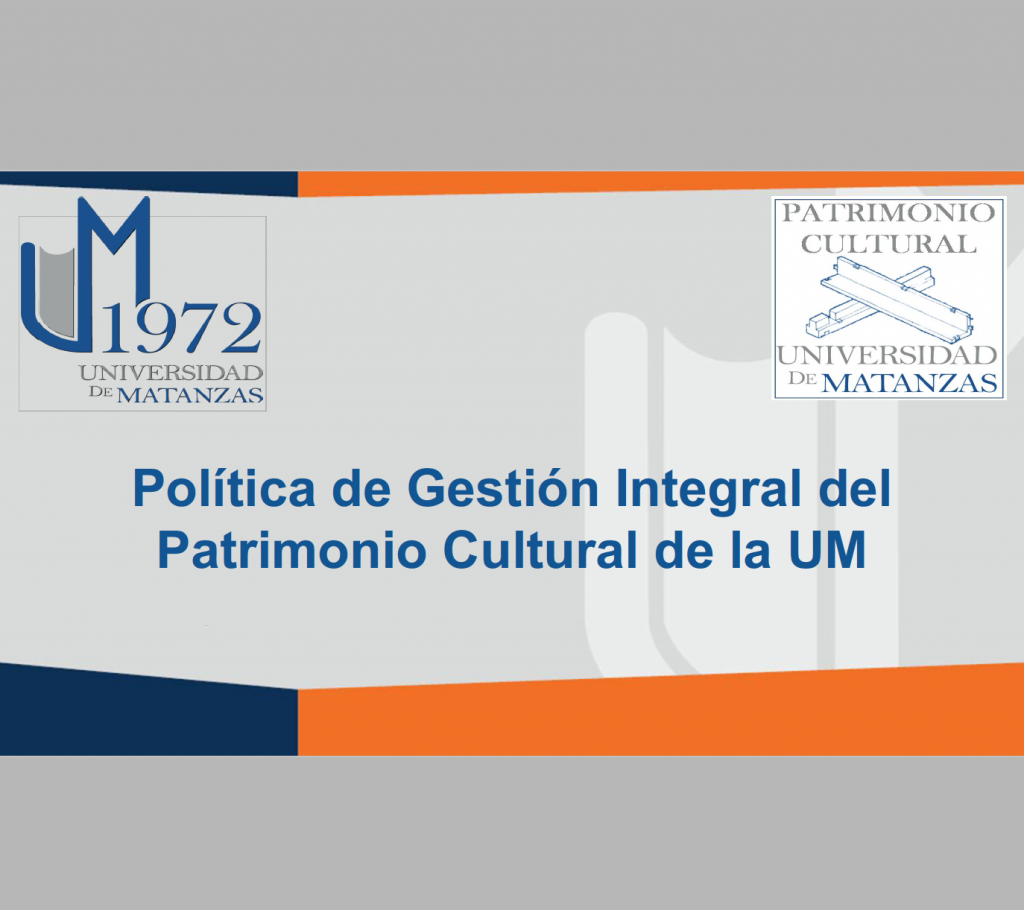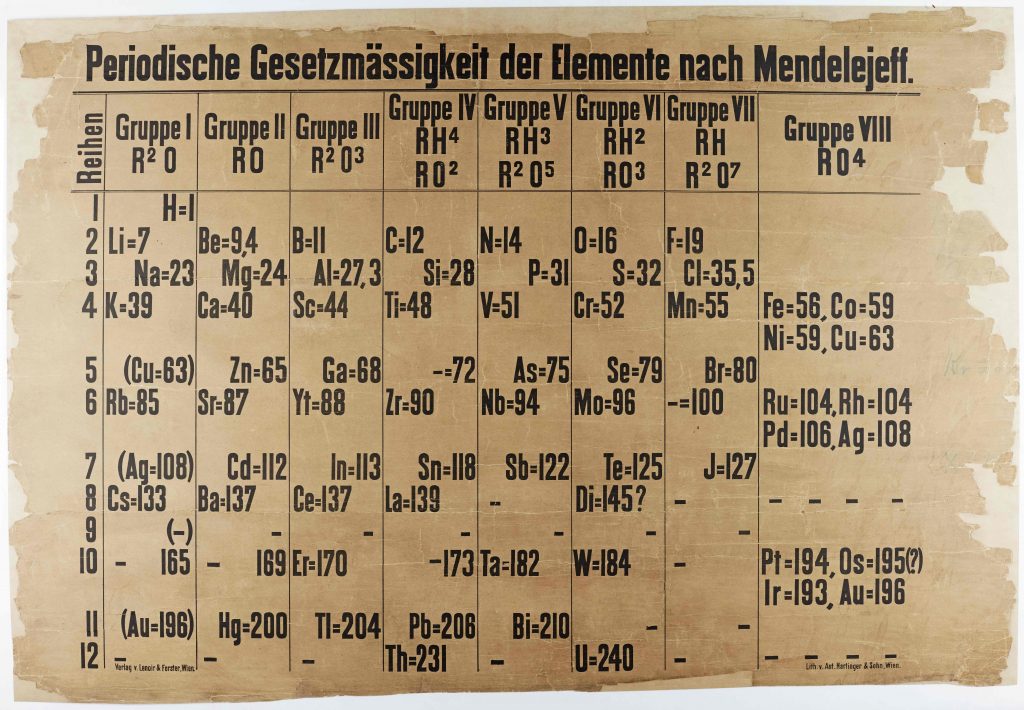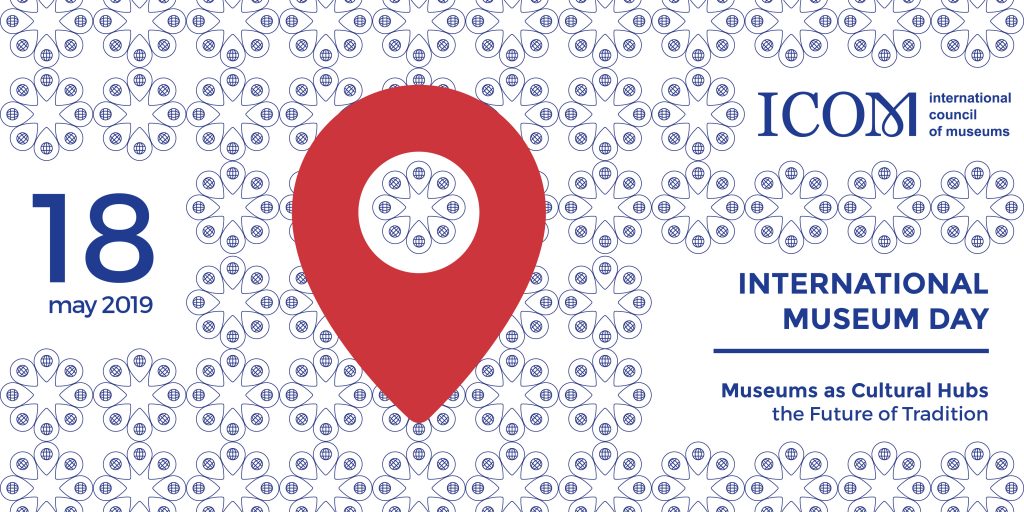
[Scroll down for French and Spanish]
The worldwide community of museums will celebrate the next International Museum Day on 18 May 2019, around the theme “Museums as Cultural Hubs: The Future of Tradition”. ICOM has celebrated International Museum Day (IMD) since 1977 to encourage public awareness of the role of museums in the development of society. In 2018, almost 40,000 museums in 158 countries participated in the event by organising specific activities. The theme of International Museum Day 2019 will also be that one of the ICOM General Conference, to be held in Kyoto, Japan from 1 to 7 September 2019.
International Museum Day 2019 will focus on the new roles of museums as active actors in their communities. The role of museums in society is changing. Once static institutions, museums are reinventing themselves to become more interactive, audience focused, community oriented, flexible, adaptable and mobile. They have become cultural hubs functioning as platforms where creativity combines with knowledge and where visitors can also co-create, share and interact.
While preserving their primary missions – collecting, conservation, communication, research, exhibition – museums have transformed their practices to remain closer to the communities they serve. Today they look for innovative ways to tackle contemporary social issues and conflict. By acting locally, museums can also advocate and mitigate global problems, striving to meet the challenges of today’s society proactively. As institutions at the heart of society, they have the power to establish dialogue between cultures, to build bridges for a peaceful world and to define a sustainable future.
As museums increasingly grow into their roles as cultural hubs, they are also finding new ways to honour their collections, their histories and their legacies, creating traditions that will have new meanings for future generations and relevance for an increasingly diverse contemporary audience at a global level. This transformation, which will have a profound impact on museum theory and practice, also forces museum professionals to rethink the value of museums and to question the ethical boundaries that define the very nature of their work.
At once a focal point for the community and an integral part of a global network, museums offer a platform for translating the needs and views of local communities into a global context.
We invite all of the world’s museums – whether large or small, urban or rural, or dedicated to the arts or sciences – to join us next 18 May in celebrating the complex link between future and tradition. To help institutions wishing to participate in the International Museum Day, ICOM will provide an organisation kit for museums and an interactive map to promote their activities on the new International Museum Day website which will be online in early February.
So that you can promote the event on your websites and social media, we also send you the poster (also available as an attachment in its trilingual version) and the web banner, which you can download below.
We are counting on your participation to make IMD a unifying and festive event worldwide.
Best regards,
The ICOM Secretariat
Le Conseil international des musées (ICOM) organise depuis 1977 la Journée internationale des musées, qui a lieu chaque année le 18 mai, afin de sensibiliser le grand public au rôle des musées dans le développement de la société. En 2018, plus de 40000 musées, dans près de 158 pays, ont participé à cette journée en organisant des activités et des événements dédiés.
L’édition 2019 réunira les musées participants autour du thème « Les musées, plateformes culturelles : l’avenir de la tradition», un thème qui servira également de fil rouge à la Conférence générale de l’ICOM, qui se tiendra à Kyoto, Japon du 1 au 7 septembre 2019.
La Journée internationale des musées 2019 mettra l’accent sur le nouveau rôle des musées en tant qu’acteurs actifs dans leurs communautés. Le rôle des musées dans la société évolue. Institutions auparavant statiques, les musées se réinventent pour devenir plus interactifs, axés sur le public, axés sur leur communauté, flexibles, adaptables et mobiles. Ils sont devenus des centres culturels fonctionnant comme des plateformes où la créativité se combine au savoir et où les visiteurs peuvent également créer, partager et interagir.
Tout en préservant leurs missions premières – collecte, conservation, communication, recherche, exposition – les musées ont transformé leurs pratiques pour rester plus proches des communautés qu’ils servent. Aujourd’hui, ils recherchent des moyens novateurs de s’attaquer aux problèmes sociaux et aux conflits contemporains. En agissant localement, les musées peuvent également défendre et atténuer les problèmes mondiaux en s’efforçant de relever les défis de la société actuelle de manière proactive. En tant qu’institutions au cœur de la société, elles ont le pouvoir d’instaurer un dialogue entre les cultures, de jeter des ponts pour un monde pacifique et de définir un avenir durable.
Au fur et à mesure que les musées jouent un rôle de plus en plus importants en tant que pôles culturels, ils trouvent également de nouveaux moyens d’honorer leurs collections, leurs histoires et leurs héritages, créant ainsi des traditions qui auront de nouvelles significations pour les générations futures et une pertinence pour un public contemporain de plus en plus diversifié au niveau mondial. Cette transformation, qui aura un impact profond sur la théorie et la pratique des musées, oblige également les professionnels des musées à repenser la valeur des musées et à remettre en question les frontières éthiques qui définissent la nature même de leur travail.
À la fois point focal de la communauté et partie intégrante d’un réseau mondial, les musées offrent une plateforme permettant de traduire les besoins et les points de vue des communautés locales dans un contexte mondial.
Qu’ils soient grands ou petits, situés en milieu urbain ou rural, qu’ils soient dédiés aux sciences ou aux arts, nous invitons les musées du monde entier à rejoindre cette fête qui célébrera le lien complexe entre l’avenir et la tradition, le 18 mai prochain.
Pour aider les institutions qui souhaitent participer à la Journée internationale des musées, l’ICOM mettra à disposition un kit d’organisation pour les musées et une carte interactive pour la promotion de leurs activités sur le tout nouveau site web de la journée internationale des musées qui sera en ligne début février.
Afin que vous puissiez relayer l’événement sur vos sites web et réseaux sociaux, nous vous envoyons également l’affiche (disponible également en pièce jointe dans sa version trilingue) et la bannière web.
Cette année encore, votre aide contribuera à la réussite de cet événement fédérateur et festif dans le monde entier !
Vous remerciant de votre participation,
Le Secrétariat de l’ICOM
La comunidad mundial de museos celebrará el próximo Día Internacional de los Museos el 18 de mayo de 2019, en torno al tema “Los museos como ejes culturales: El futuro de la tradición”. El ICOM ha celebrado el Día Internacional de los Museos (DIM) desde 1977 para concienciar al público sobre el papel de los museos en el desarrollo de la sociedad. En 2018, casi 40,000 museos en 158 países y territorios participaron en el evento, organizando actividades especiales. Este año, el tema del Día Internacional de los Museos 2019 también será el mismo que el de la 25 Conferencia General del ICOM, que se celebrará en Kioto, Japón del 1 al 7 de septiembre de 2019.
El Día Internacional de los Museos 2019 se centrará en los nuevos papeles que desempeñan de los museos como actores activos en sus comunidades. El papel de los museos en la sociedad está cambiando. Antes consideradas instituciones estáticas, los museos se están reinventando para ser más interactivos, centrados en la audiencia, orientados a la comunidad, flexibles, adaptables y móviles. Se han convertido en ejes culturales que funcionan como plataformas donde la creatividad se combina con el conocimiento y donde los visitantes pueden co-crear, compartir e interactuar.
A la vez que preservan sus misiones principales (recolección, conservación, comunicación, investigación, exhibición), los museos han transformado sus prácticas para acercarse a las comunidades a las que sirven. Hoy buscan formas innovadoras de abordar problemas y conflictos sociales contemporáneos. Actuando a nivel local, los museos también pueden defender y mitigar problemas de escala global, enfrentándose de manera proactiva a los desafíos que afronta nuestra sociedad. Como instituciones en el corazón de sus comunidades, tienen el poder de establecer un diálogo entre culturas, de construir puentes para un mundo pacífico y de definir un futuro sostenible.
A medida que los museos se desarrollan cada vez más en sus papeles de centros culturales, también encuentran nuevas formas de honrar sus colecciones, historias y legados, creando tradiciones que tendrán nuevos significados para las generaciones futuras y una nueva relevancia para un público contemporáneo y global cada vez más diverso. Esta transformación, que tendrá un profundo impacto en la teoría y la práctica de los museos, también obligará a los profesionales de los museos a repensar el propio valor de los museos y a cuestionar los límites éticos que definen la naturaleza misma de su trabajo.
Siendo al mismo tiempo un punto focal para la comunidad y parte integral de una red mundial, los museos ofrecen una plataforma para traducir las necesidades y visiones de sus comunidades locales a un contexto global.
Invitamos a todos los museos del mundo, ya sean grandes o pequeños, urbanos o rurales, dedicados a las artes o las ciencias, a unirse a nosotros el próximo 18 de mayo para celebrar el complejo vínculo entre el futuro y la tradición. Para ayudar a las instituciones que deseen participar en el Día Internacional de los Museos, el ICOM proporcionará un kit de organización para los museos y un mapa interactivo para promover sus actividades en el nuevo sitio web del Día Internacional de los Museos, el cual estará en línea a principios de febrero.
Para que puedan promocionar el evento en sus sitios web y redes sociales, también les enviamos el póster (disponible como archivo adjunto en su versión trilingüe) y el banner para el sitio web, que puede descargar a continuación.
Contamos con su participación para hacer de IMD un evento unificador y festivo en todo el mundo.
Atentamente,
La Secretaría del ICOM
